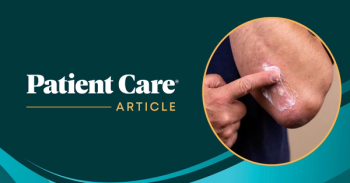
Crash Rash Quiz: 8 Psoriasis Questions
Guttate and other psoriasis may be confused with other rashes and skin lesions. Scratch the surface of your knowledge with this crash quiz.
Guttate psoriasis is the second most common type of psoriasis, after plaque psoriasis. This form of psoriasis can precede or co-exist with other forms, such as plaque psoriasis, and may be difficult to distinguish from other rashes and skin lesions
Take this crash quiz to test your knowledge.
Question 1: When guttate psoriasis is suspected, which of the following are least likely to be considered in the differential?
A.
Seborrheic dermatitis and onychomycosis
B
. Nummular eczema and lichen planus
C
. Chickenpox and measles
D.
Lichen simplex chronicus and mycosis fungoides Please click here for answer and next question.
The correct answer is C. Chickenpox and measles
Question 2. Guttate psoriasis most often occurs in what age group?
A.
Young children (age 3-10 years)
B.
Children and young adults (age <30 years)
C.
Young and middle-aged adults (age 20-45 years)
D.
Middle-aged and older adults (age 30-65 years)
Please click here for answer and next question.
The correct answer is B. Children and young adults (age <30 years)
Question 3.Which sign is a tipoff that guttate psoriasis is the diagnosis?
A.
Auspitz sign
B.
Borsari sign
C.
Crowe sign
D.
Darier signPlease click here for answer and next question.
The correct answer is A. Auspitz sign
Question 4. Guttate psoriasis is predictive of extensive disease.
A.
True
B.
FalsePlease click here for answer and next question.
The correct answer is B. False
Question 5.Which of the following statements about infections and guttate psoriasis is/are true?
A.
Preceding strep infections (including perianal strep) are reported commonly.
B.
Viral infections can trigger the rash.
C.
Specific streptococcal proliferative factor effects the keratinocytes-the Koebner phenomenon.
D.
A, B, and C
E.
A and B but not CPlease click here for answer and next question.
The correct answer is D. A, B, and C
Question 6. Which of the following is NOT a trigger for guttate psoriasis?
A. Upper respiratory infections
B. Synovitis
C. Streptococcal infections other than tonsillitis
D. Stress
E. Antimalarials
Please click here for answer and next question.
The correct answer is B. Synovitis
Question 7. Guttate psoriasis is more common (including recurrence) in patients with weakened immunity.
A.
True
B.
FalsePlease click here for answer and last question.
The correct answer is A. True
Question 8. What is the preferred treatment for guttate psoriasis?
A.
Phototherapy
B.
Systemic agents
C.
Topicals
D.
Ã-blockersPlease click here for answer.
The correct answer is C. Topicals
For more information on all questions and answers, please visit the original case:
Newsletter
Enhance your clinical practice with the Patient Care newsletter, offering the latest evidence-based guidelines, diagnostic insights, and treatment strategies for primary care physicians.

































































































































